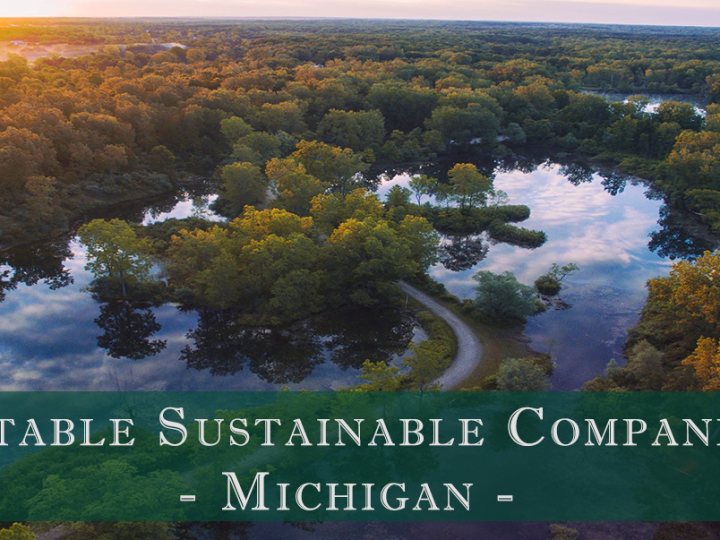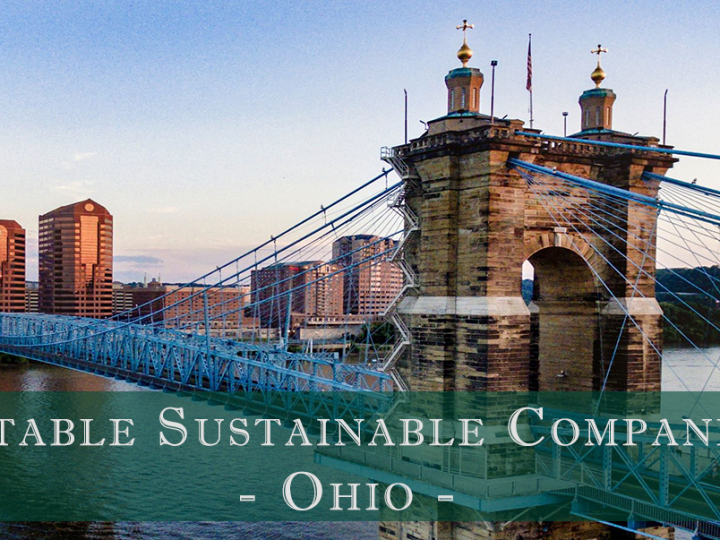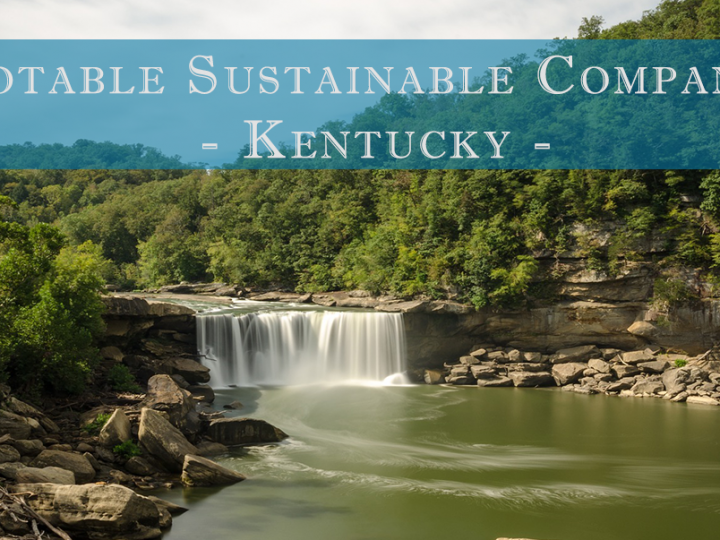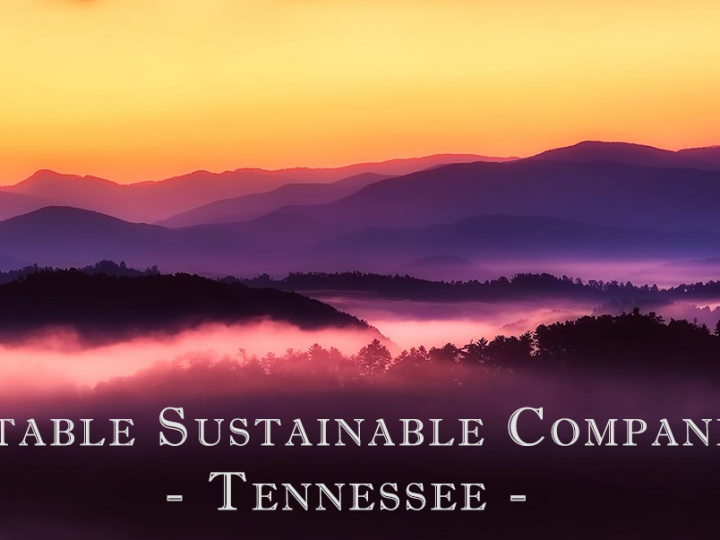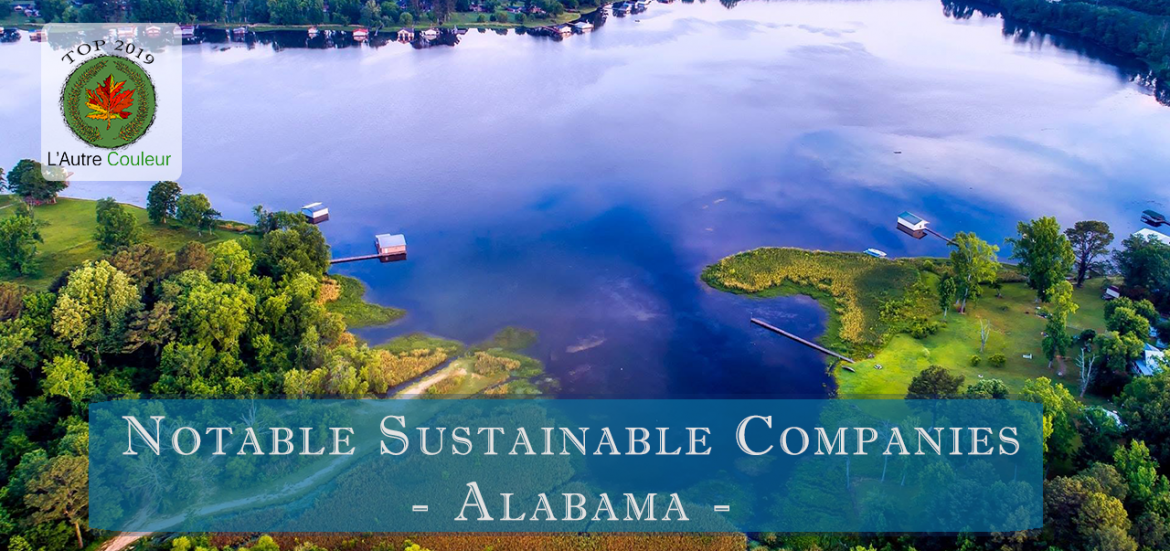
Notable Sustainable Companies
in Alabama
Starting 2019 with the next state in line—Alabama! Home to the novelist—and Pulitzer Prize winner—Harper Lee who wrote To Kill a Mockingbird; African-American baseball pioneers Hank Aaron and Willie Mays; as well as legendary boxer Joe Louis. As for sustainable development, we discovered many leaders who focus on hands-on education, seafood traceability and environmental advocacy. We hope these notable sustainable companies in Alabama make you smile!
There are many more sustainable companies that we may have missed, so if you believe you should be in the Notable Sustainable Companies in Alabama, feel free to contact us and we will evaluate your sustainable initiative. We did not receive any funding or incentives to feature these companies. Our goal is to create awareness of sustainable development and encourage others to participate. Companies listed here are also welcome to add our eco-badge to their website, located at the bottom of this article.
Notable Sustainable Companies in Alabama
Harvest Select Catfish
The Monterey Bay Aquarium Seafood Watch program helps consumers and businesses make choices for a healthy ocean. Channel catfish farmed in the U.S. in ponds is a “Best Choice.”
“U.S. catfish farms are usually sited on old agricultural lands in shallow ponds, and they can have beneficial effects by functioning as artificial wetlands. On average, ponds are drained about every 11 years, and there are no cumulative environmental impacts when draining occurs. Chemical use is well regulated and safe, and the incidence of disease among farmed catfish has declined over the last two decades. In addition, very low amounts of fishmeal and fish oil are used in the feed, which is made primarily from agricultural crop-derived ingredients. The industry is managed well, and extensive data is available.” Source: Monterey Bay Aquarium Seafood Watch
In 1991, five west Alabama farmers set out to create a company that raises and distributes the finest quality U.S. farm-raised catfish on the market, in a cost-efficient, environmentally responsible manner. The company Harvest Select Catfish is doing great strides in providing quality, sustainable catfish to Americans. By 2008, they were listed as the first U.S. catfish processor to be Best Aquaculture Certified (BAP) by the Global Aquaculture Alliance.
Today, Harvest Select Catfish has over 250 dedicated, trained personnel in Uniontown, Alabama producing over 750,000 pounds of catfish weekly. Their hands-on approach allows them to get the fish out of the pond and restaurant ready in less than 50 minutes.
Harvest Select Catfish also distributes Tilapia, farm-raised shrimp and Pontchartrain Blue Crab, all good options for sustainable seafood.
Alabama Center for Rural Enterprise Community Development Corporation (ACRE)
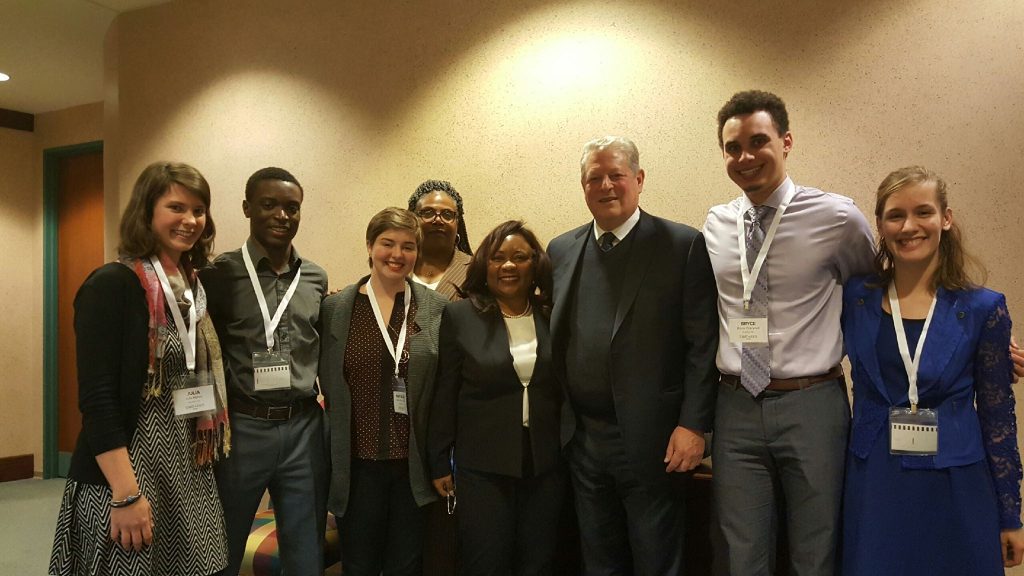
Photo: ACRE Facebook
This next one on our list of Notable Sustainable Companies in Alabama intersects politics and water equity. The Alabama Center for Rural Enterprise (ACRE), originally part of the Alabama Rural Initiative of the National Center for Neighborhood Enterprise, is a nonprofit using economic development and participatory involvement model to build infrastructure in impoverished, rural communities.
How does this advance sustainable development?
Lowndes County has grown accustomed to the flooding that results from moderate rains and a lack of wastewater infrastructure. Residents report sewage backups flooding basements, lawns, and streets, exposing them to harmful bacteria not normally found ineffective wastewater systems.
Rather than waiting for a state or federal agency to step in, ACRE assists residents in building their own decentralized wastewater system to reduce flooding and improve local water quality.
Decentralized system solutions play a pivotal role in an emerging “green, clean, smart” paradigm for water resource design and management. Recycled water can satisfy many non-potable water demands, as long as the water is adequately treated for the intended application.
Applications for decentralized reuse water include:
- Cooling water for power generation and oil refineries;
- Process water for industries including textile, pulp and paper, and food and beverage processing;
- Agriculture;
- Golf course and landscape irrigation;
- Commercial toilets, cleaning and fire systems; and
- Residential communities.
The decentralized water reuse approach provides the following benefits for communities and facilities:
- It is performance-based, scalable, modular, affordable and adjustable.
- It can be readily deployed without high site construction costs;
- Planning is continuous, strategic and adaptable.
- It enables site-specific customized treatment solutions, processes, structures and skills that will most effectively achieve the desired treatment results.
- It fosters collaboration with both community, industrial and watershed stakeholders to moderate financial and environmental risk. Source: Water Quality Products
Today, ACRE’s impact extends beyond Lowndes County. The project received a grant from the EPA to become a National Demonstration Project that will provide a successful model for wastewater treatment, community outreach, and poverty reduction to other rural areas around the country.
Tennessee Riverkeeper
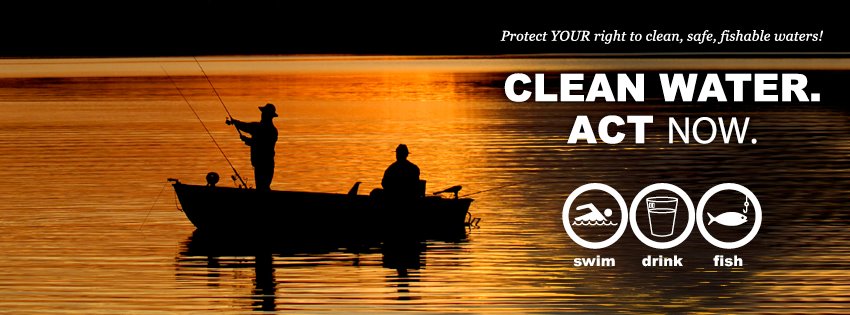
Photo: Tennessee Riverkeeper Facebook
Tennessee Riverkeeper works on behalf of the community to advocate for clean and safe waters in the Tennessee and Cumberland Rivers and tributaries. Since 2009, they have addressed more than 40,000 pollution violations. In 2016 alone, their team addressed over 4,739 Clean Water Act violations through legal actions. In other words, if you see pollution in the river, you now know you can report it to Tennessee Riverkeeper.
This notable sustainable company in Alabama functions primarily on three pillars:
- Enforcement – Investigating pollution issues and ensuring environmental laws and regulations are implemented.
- Advocating – Advancing sensible solutions and environmental enforcement to better protect the Tennessee and Cumberland River watersheds.
- Education – Informing the public about the Tennessee and Cumberland Rivers and the issues impacting their health.
Their work is supported by their partners including, but not limited to:
Waterkeeper Alliance; who provides a way for communities to stand up to anyone who threatens this right—from law-breaking corporate polluters to irresponsible governments. On over 320 waterways, from the Great Lakes to the Gulf of Mexico, the Amazon to the Ganges, Waterkeepers are on patrol, in boats ranging in size from kayaks to research vessels. Waterkeeper Alliance makes sure that the world’s Waterkeepers are connected to each other, organizing the stance for clean water into a coordinated global movement.
Patagonia; as most of us know, Patagonia funds hundreds of small-to-medium-sized projects that focus on environmental protection, committing at least 1 percent of its sales to this purpose each year.
The Waterwheel Foundation; which was created by the band Phish in 1997 to oversee the band’s various charitable activities, including fundraising during their tours. From its debut through the current tour, the primary mission of WaterWheel’s Touring Division has been to raise funds for a local non-profit in each community Phish visits while on tour.
SweetWater Brewing Company; who puts a focus on protecting waterways because you can’t make good beer without good water. For more than a decade they’ve been teaming up with Chattahoochee Riverkeeper and Waterkeeper Alliance to try to do their part to help raise funds and awareness on the importance of clean waterways.
Watershed Consulting

Photo: Watershed Facebook
Watershed is a notable sustainable company based on the Eastern Shore of Mobile Bay that works with; design; development and construction teams; businesses; and homeowners to create healthy buildings and landscapes. These are shaped to conserve energy and resources while fostering a greater connection to the natural world.
Their expertise revolves around building design, construction, and operational solutions for a hot humid climate, such as the one found in Alabama.
Among their vast portfolio, we found that some of our favourite projects they worked on included:
- WAV Offices; an office building in downtown Fairhope shared by Walcott Adams Verneuille Architects, Watertershed themselves, and several other firms. In 2011 the building registered its intent to be the first office in Alabama to achieve LEED certification for Existing Buildings and Operations and Maintenance. Watershed began the process of evaluating the existing facility, operations, and occupant behavior. After a year of tracking energy and water use, and implementing free upgrades to operations, maintenance and IT protocols, energy use was reduced by over 10% and the building has achieved Energy Star status. Watershed was also able to secure a grant for lighting improvements through ADECA.
- FSCC – Memorial Hall; with Watershed Consulting Faulkner State Community College’s Memorial Hall on Bay Minette campus achieved LEED certification in the fall of 2013. Designed by Walcott Adams Verneuille Architect, 33% of the building materials were recycled, and another 22% were sourced from within 500 miles. The landscape can absorb and filter 55,000 gallons of stormwater. More than 37,000 gallons that it was able to absorb and filter during pre-development. Indoor water use has been reduced by 34%, saving approximately 98,820 gallons annually. At the time, White-Spunner Construction built the facility and was able to recycle almost 3/4 of their construction waste: 164 tons total.
Alabama Chanin
From seed to fabric, Alabama Chanin’s sustainability journey begins with their 100% organic cotton fabric and continues in the repurposed and reclaimed materials that they incorporate into their clothing and home goods. The other component of their business is The School of Making.
Alabama Chanin defines themselves as makers and educators, working to elevate and merge design, craft, and fashion. In addition, The School of Making functions as a researching body for new subjects and new ways of disseminating information. Together they maintain an active voice in their local community, state, and the larger making community as a whole.
What’s more is The Factory Café. Located in Florence, Alabama, The Factory Café is home to Alabama Chanin’s flagship store and a full-service café, along with the Alabama Chanin design and production studios and Bldg. 14 Design + Manufacturing division. The Factory Store features the newest Alabama Chanin Collection, accessories, home goods, dinnerware, kitchenware from local artisans, as well as a selection of fabrics, sewing notions and tools, books, and more.
The Factory Café offers seasonal, local, and organic fare that highlights the best of the new southern kitchen.
Higher Ground Roasters

Photo: Higher Ground Coffees Facebook
Higher Ground Roasters is ensures that coffee farmers and the environment are protected in their search for the world’s best beans. The team roasts exclusively 100% Certified Organic, Fair Trade, and Shade Grown Coffees. To offset their daily energy usage, Higher Ground Roasters purchases wind power credits through Renewable Choice Energy, which helps subsidize wind farms.
Moreover, they have formed partnerships with several non-profits, such as:
- Alabama Rivers Alliance; who works to protect and restore state rivers through water advocacy, restoration planning, grassroots organizing, and watershed education. Every cup of Higher Ground’s River Roast promotes their goals of clean and healthy ecosystems and communities by donating 10% of the proceeds to the non-profit organization.
- Black Warrior Riverkeeper; is dedicated to improving habitat, recreation, and public health throughout the largest river watershed fully contained within Alabama, America’s leading state for freshwater biodiversity. Black Warrior Riverkeeper patrols the river, educates the public and is a proud member of Waterkeeper Alliance.
- The Cahaba River Society; works to restore and protect the Cahaba River watershed and its rich diversity of life. Every cup of Higher Ground’s Cahaba River Blend promotes their goals by donating 10% of the proceeds to the non-profit organization.
- The Freshwater Land Trust; acquires, conserves, and cares for lands that are critical for the protection of rivers and streams, and preserves open space. The Freshwater Land Trust works to promote the stewardship of land to improve water quality and conserve vital open spaces.
Energy Alabama
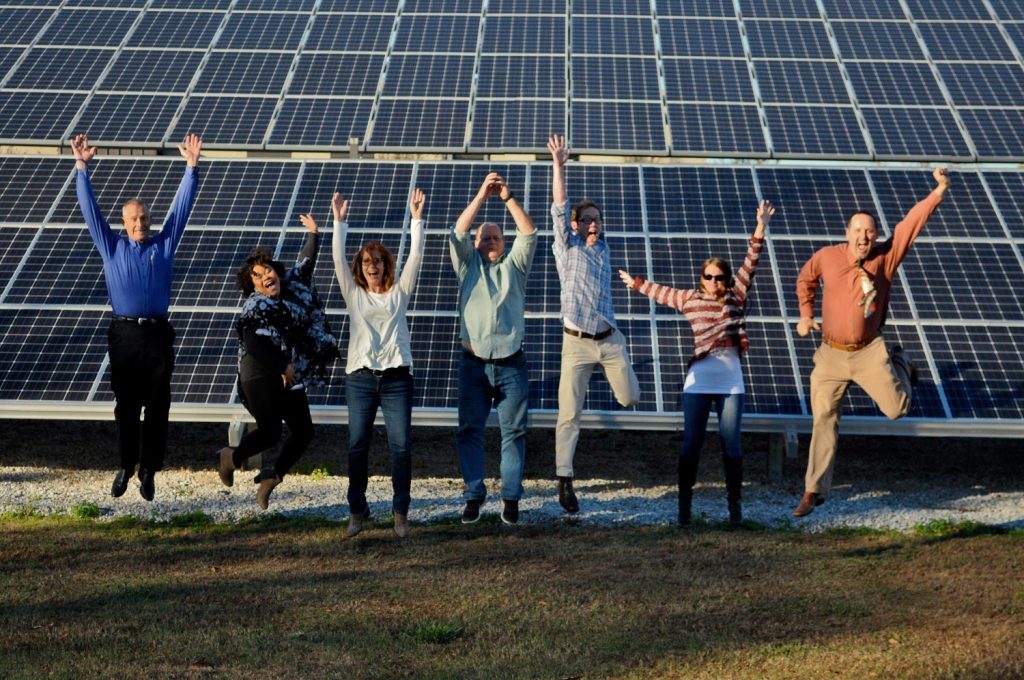
Photo credit: Energy Alabama website
Energy Alabama invites business owners, citizens and homeowners to connect with them in order to transition their space to sustainable energy. This nonprofit organization has been in the clean energy game since 2014, pushing for education, advocacy and technical assistance.
Here are a few readings to get started:
- What is net zero energy?
- What is sustainable energy?
- What is energy efficiency?
- How does energy affect air quality?
- How to go solar in North Alabama?
Next Up: Top 15 Sustainable Initiatives in Georgia
Jim ’N Nick’s Community Bar-B-Q
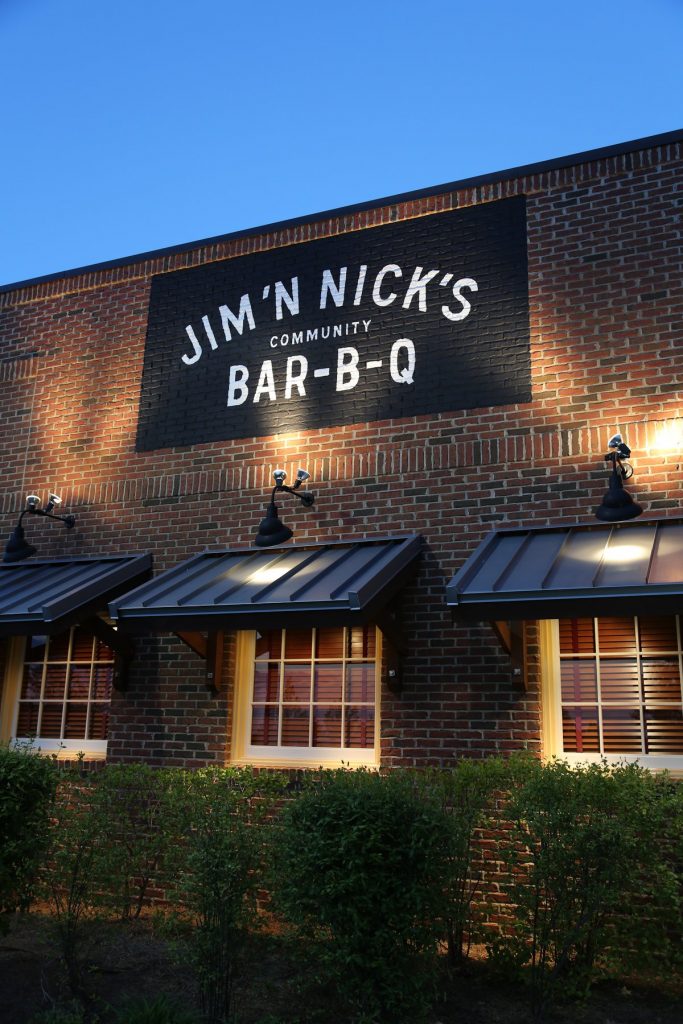
Photo: Jim ‘N Nick’s Facebook
In Alabama, you can find almost any kind of barbecue. Whether the influence is Cherokee, Appalachian, Georgian, Mississippian, Floridian, Tennessean, Texan, or just plain Alabamian, barbecue springs up everywhere, with significant variation. Pihakis, founder of Jim ’N Nick’s Community Bar-B-Q restaurants, is on a mission to see that all Alabama barbecue is made from responsibly-raised meat.
Through his Fatback Pig Project, Pihakis incentivizes local farmers to raise healthy, happy hogs for Jim ’N Nick’s — and other restaurants in his hospitality group. They started a processing plant for these farmers and put a distribution system and end user in place.
Neowaste
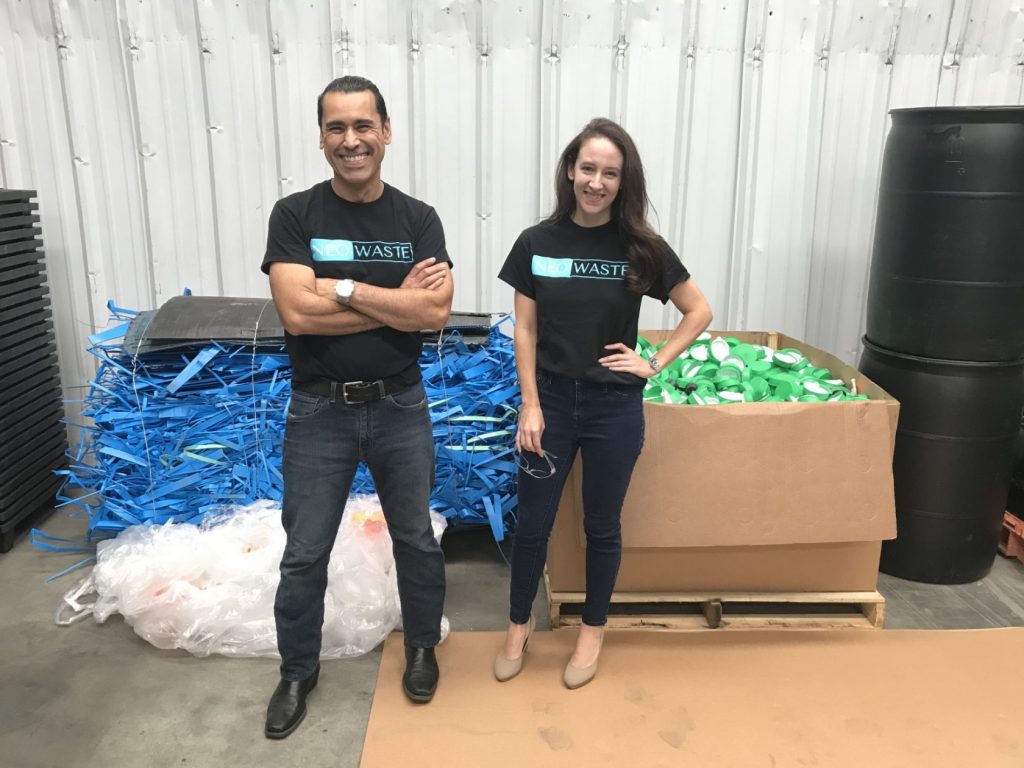
Photo: BamNow
The world discards than 2 billion tons of valuable material each year, and landfills are filling up. Plus, long-term fuel stability is a geopolitical issue.
The U.S. produces more than 30 percent of the planet’s total waste, though it is home to only 4 percent of the world’s population. In 2014 alone, the U.S. threw out over 258 million tons of “municipal solid waste,” or trash discarded by homes, businesses and institutions, such as universities and libraries. A Columbia University study estimates that Americans throw out 7 pounds of materials per person every day – that’s 2,555 pounds of materials per American every year. Those materials make up only 3 percent of all solid waste in America – the vast majority is generated by industrial processes such as mining, manufacturing and agriculture. Source:Frontier Group
Hailing from Pell City, Neowaste is a sustainable company bringing waste management solutions to their state. Neowaste diverts waste from landfills and uses it to create synthetic fuel, or as they call it “neofuel.” According to Neowaste’s website, one ton of plastic waste can produce 260 gallons of fuel.
They are backed by strong partners, seeking to have a local waste management operation, such as:
- Southern Research: Founded in 1941, Southern Research (SR) is an independent, 501(c)(3) nonprofit, scientific research organization with more than 400 scientists and engineers working across four divisions: Drug Discovery, Drug Development, Engineering, and Energy & Environment. SR supports the pharmaceutical, biotechnology, defense, aerospace, environmental, and energy industries as they work on behalf of the National Cancer Institute, National Institutes of Health, the U.S. Department of Defense, the U.S. Department of Energy, NASA, major aerospace firms, utility companies, and other private and government organizations. They pursue entrepreneurial and collaborative initiatives to develop and maintain a pipeline of intellectual property and innovative technologies that positively impact real-world problems. SR is headquartered in Birmingham with additional laboratories and offices in Wilsonville, Alabama; Frederick, Maryland; Cartersville, Georgia; and Houston, Texas.
- UAB School of Engineering: The UAB School of Engineering is comprised of 1,200 students. Roughly 70 percent are undergraduate and 30 percent are graduate students. Their undergraduate students are immediately exposed to the engineering design process as freshmen. Students will participate in design projects all throughout their undergraduate curriculum. They have a dedicated Undergraduate Design Laboratory with computer-controlled milling machines/lathes to provide cutting-edge equipment for students to engage in engineering design.
- Polycrack: Polycrack® is the world’s first patented heterogeneous catalytic process which converts multiple feedstocks into hydrocarbon liquid fuels, gas, carbon and water.
- Trinity Design Group: Founded in 2004, TDG consists of three divisions; packaging & fulfillment, focused on sustainable solutions in packaging, commercial printing, fulfillment, corrugate, pop display and signage from concept to delivery; EnviroCare, focused on recycling, reclamation & waste stream management with additional services in global environmental compliance and legislation; Eco Solutions, focusing on EPA certified environmental, industrial cleaning products.
- Sunoco: Sunoco has grown as a small oil company in Pittsburgh, PA, to one of the largest fuel distribution companies in the United States.
- Polypro Industrial Recycling: a full-service post-industrial plastic recycling facility.
Jefferson County Beekeepers Association
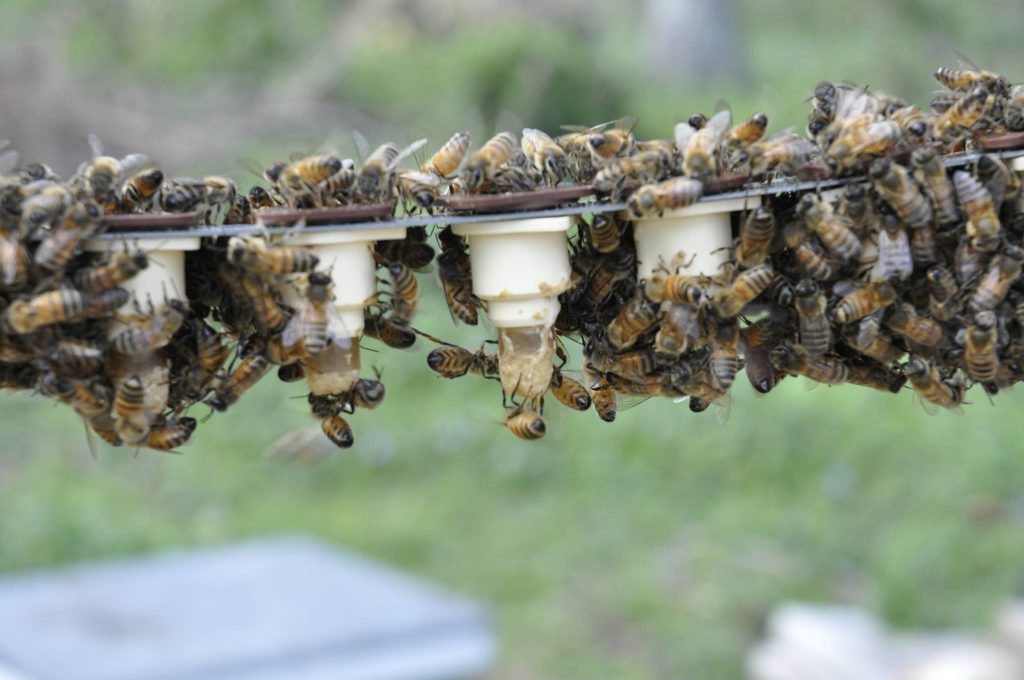
The Jefferson County Beekeepers Association promotes beekeeping through the education and assists in the sale of honeybee products. There are many joys of beekeeping to discover and each year they offer a Spring class for beginners, open to young and old.
Curious about beekeeping? Attend one of their monthly meetings at the Birmingham Botanical Gardens.
Alabama Coastal Foundation
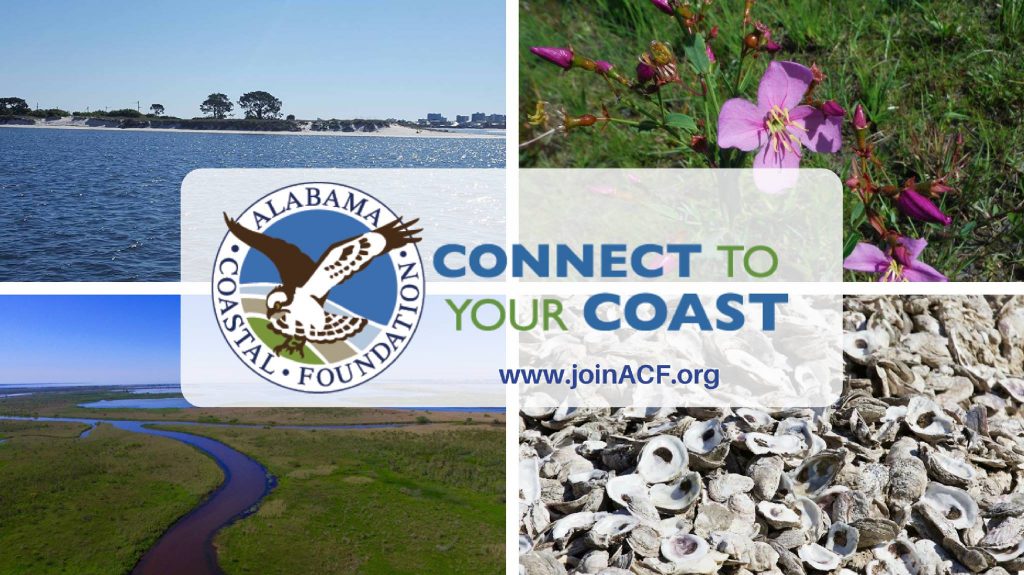
Photo: Alabama Coastal Foundation Facebook
Since 1993, the Alabama Coastal Foundation (ACF) has worked to create a healthy balance between the conservation needs of Alabama’s priceless coastal resources and the inevitable pressures of economic growth. They encourage responsible citizen action and offer opportunities for individuals to play a vital role in preserving the environment and your coastal way of life. They provide reliable, well-researched data, promoting public dialogue, and advocating community action.
One of the most impactful initiatives developed by their team was the 100-1000 Restore Coastal Alabama Partnership; a collaboration between organizations along the Alabama Gulf Coast who share the goal of building 100 miles of oyster reefs and to cultivate 1,000 acres of marsh grass throughout coastal Alabama.
The partnership consists of four administrative organizations: Alabama Coastal Foundation, Mobile Baykeeper, The Nature Conservancy, and The Ocean Foundation.
The partnership brings together more than 40 private sector, state and federal agencies who collaborate on efforts toward community resiliency through economic and environmental restoration and sustainability. In addition, the 100-1000 Partnership works with community volunteers to help create awareness for sustainable, scientifically sound solutions to the problems confronting our coast.
In 2011, the 100-1000 Partnership worked at Helen Wood Park to place several miles of living shoreline as well as plant trees, shrubs, remove invasive species, and beautify the park space.
In 2012, they joined with local Grasses for Classes programs to plant native species Spartina and Juncus on private properties down Ft. Morgan Road in Baldwin County and coordinated volunteers and Holcim Engineering to continue beautifying Helen Wood Park.
In 2013, the 100-1000 Partnership created a living shoreline at Pelican Point, AL. The living shoreline protects the adjacent shoreline from erosion, helping to increase land area and property values, and enhances habitats for fish, shellfish and birds, providing opportunities for fishing, bird watching and sightseeing from land, kayak or boat.
Hot and Hot Fish Club and OvenBird
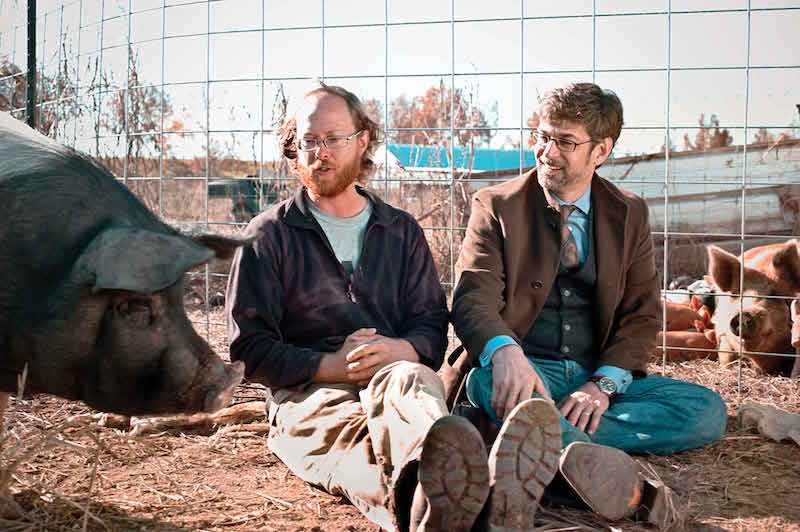
Photo: Hot and Hot Fish Club website
The Hot and Hot Fish Club‘s dining room and connecting bar offer ever-changing dishes and cocktails executed by Chef/Co-Owner Chris Hastings and his team and are inspired by Alabama, the local farmer’s harvest, and other artisans of every kind.
Chris and Idie Hastings are chef and co-owners of Hot and Hot Fish Club in Birmingham, Alabama. Housed in a historic building on Birmingham’s south side, the award-winning restaurant has earned a reputation for serving some of the freshest and refined dishes in the region.
Co-founder Idie is committed to animal welfare causes, including Hand in Paw, an animal-assisted therapy group.
Upon its inception in 1995, Hot and Hot Fish Club began to develop and utilize their extensive network of celebrated purveyors, foragers, and artisans who supply the Birmingham area with local fare, and continue this tradition today. These folks are considered the true heroes of Hot and Hot Fish Club; have a look and see if you recognize them!
Snow’s Bend Farm, Coker, Alabama
Petals from the Past, Jemison, Alabama
Forager Chris Bennett, Pell City, Alabama
Jones Valley Urban Farm, Birmingham, Alabama
Anson Mills, Columbia, South Carolina
Benton’s Smoky Mountain Country Hams, Madisonville, Tennesee
Belle Chèvre, Elkmont, Alabama
The Chef’s Garden, Huron, Ohio
Buddy Ward’s 13 Mile Seafood Co., Apalachicola, Florida
Border Springs Farm, Patrick Springs, Virginia
Terra Preta Farm, Bessemer, Alabama
Sexton’s Seafood, Birmingham, Alabama
Evans Meat, Birmingham, Alabama
Greg Abroms Seafood, Panama City, Florida
Heron Hollow Farm, Columbiana, Alabama
J3 Organics, Bessemer, Alabama
Harvest Farm, Cullman, Alabama
McEwen and Sons, Wilsonville, Alabama
Fudge Family Farms, Madison, Alabama
The Cheese Advocate, Birmingham, Alabama
Foods In Season, Washougal, WA
Herb Inc., Birmingham, Alabama
Clover Hill Farm, Spring Junction, Alabama
Ovenbird, Birmingham, Alabama
The Depot
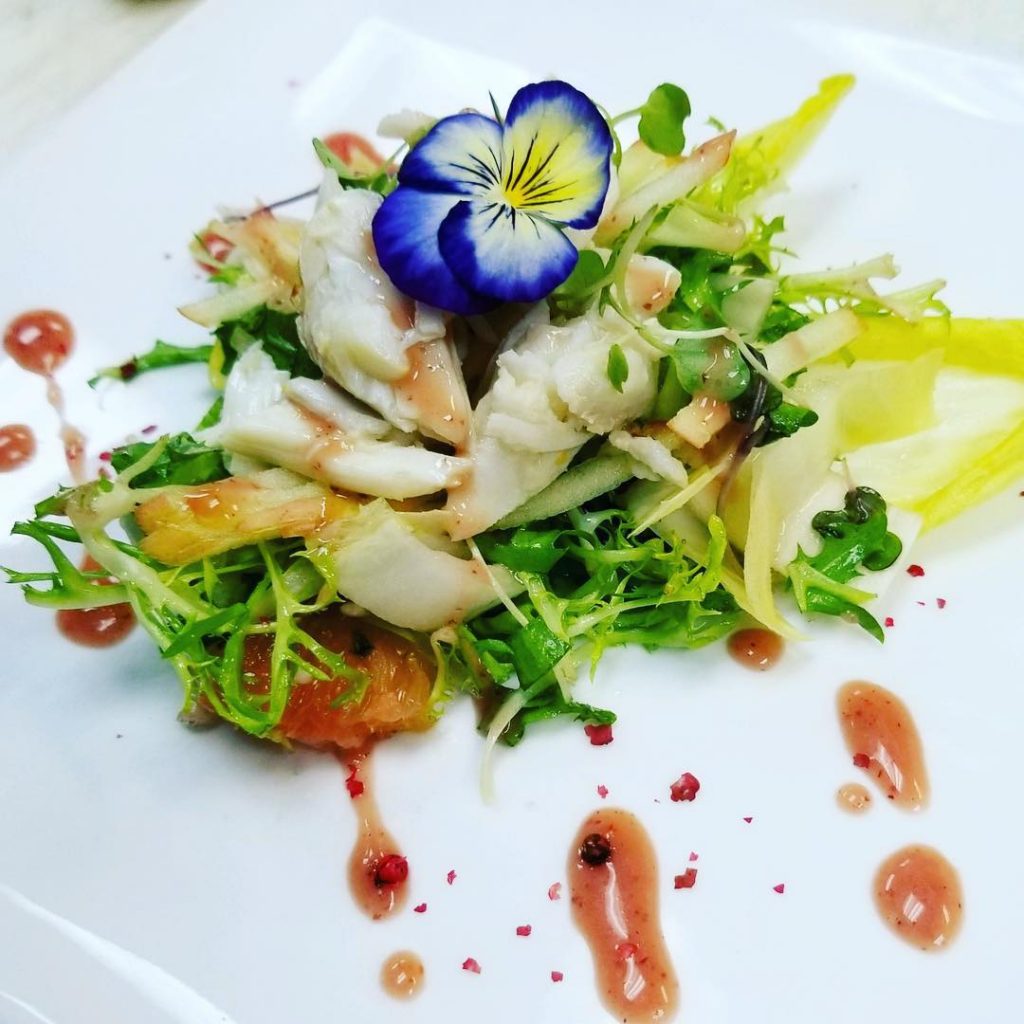
Photo: The Depot Instagram
The city of Auburn is known to lead Alabama in fisheries research, and now, in restaurants dedicated to sustainable fishing practices.
The Depot, located downtown, is the first restaurant in Alabama to join the James Beard Foundation’s prestigious Smart Catch program, a nationwide initiative for chefs to serve responsibly-farmed and sustainably-harvested seafood. It is required to complete an assessment every three months (four times a year) to maintain the restaurant’s membership in the program.
Smart Catch is an educational sustainable seafood program created by chefs for chefs with the purpose of increasing the sustainability of the seafood supply chain. With more than 90 percent of the world’s fisheries either fully fished or overfished, preserving marine life to assure stable fishing stocks and promoting sustainably farmed options is more important than ever.
The idea for Smart Catch is simple and powerful: the program provides training and support to chefs so they can serve seafood fished or farmed in environmentally-responsible ways. By becoming a Smart Catch Leader and earning the Smart Catch seal, chefs give consumers a simple way to identify and support their restaurants.
Through Smart Catch, chefs have a chance to use their influence to lead industry efforts to maintain healthy, sustainable food sources both for now and for future generations. The team behind The Depot is committed to carefully sourcing the finfish and shellfish they serve in dishes, creating accountability for both the restaurant and its seafood suppliers.
Jones Valley Teaching Farm
Mentioned above, Jones Valley Teaching Farm is not just a place where delicious food grows – it’s a place where young minds blossom. Their entire focus is on empowering students to be the next generation of critical thinkers, problem-solvers and change agents in their communities.
The fellows at Jones Valley do this by connecting standards-based education to real-world food issues, collaborating with their partner schools to provide students with innovative, hands-on programs that improve student learning and increase access to healthy food.
As of this date, they have seven teaching farms located in elementary, middle, and high school campuses located at; The Downtown Farm Campus and John Herbert Philips Academy; Glen Iris Elementary School; Henry J. Oliver Elementary School; Avondale Elementary School; W.E. Putnam Middle School; C.W. Hayes K-8 School and Woodlawn High School.
Since launching Good School Food, their impact in numbers demonstrate:
- 35,000 seeds sown
- 4,646 students engaged
- 1,000 lessons a year
- 1,200 taste tests
- 1910 Student Internship Hours for Course Credit
- 379 varieties of fruits and vegetables grown
Schoolyard Roots
Similar to Jones Valley Teaching Farm, Schoolyard Roots developed a unique curriculum, to teach a hands-on science- and math-based education to Kindergartners through 5th graders.
Every week during the school year, students explore science by participating in their outdoor teaching tool – the garden. Students dissect carrots to learn about tap roots, they multiply recipes to understand fractions, they go on math-based scavenger hunts to unfold the secrets of the garden, and so much more.
We hope you enjoyed L’Autre Couleur’s Notable Sustainable Companies in Alabama!
L’Autre Couleur is a responsible content marketing & design agency that represents companies making a difference in positive impact & sustainability. We offer end-to-end full service in digital marketing services, ranging from content writing & web design to social media and public relations campaign management.
To work with us on content writing or digital marketing projects, feel free to contact us.
This was the 17th post in the Notable Sustainable Companies series; one for every State in the United States. You can expect a Notable Sustainable Companies article for every State in the United States! To stay updated on the up and coming initiatives, subscribe to our monthly newsletter and follow us on Facebook. Also please comment if we have left out any important sustainable companies in Alabama that you believe should be part of our list of top sustainable companies, or if you have any thoughts/comments on the article.
Check out some of the sustainable companies happening in your neighbouring country.
- Top Sustainable Companies in Washington, DC
- Top Sustainable Companies in Pennsylvania
- Top Sustainable Companies in West Virginia
- Notable Sustainable Companies in North Carolina

Use this code to embed the badge on your site:
Sincerely,
L’Autre Couleur

